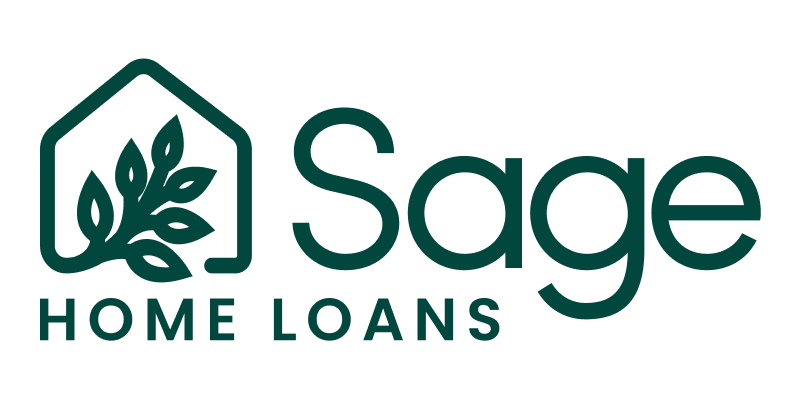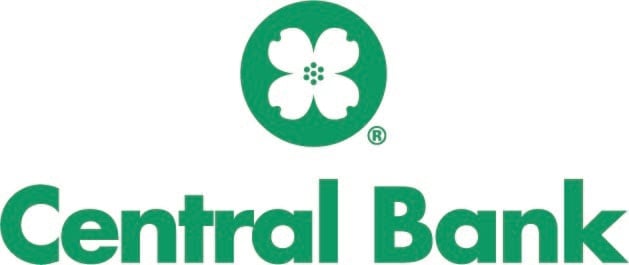Compare Today’s Mortgage Rates | Thursday, February 12, 2026
Rates are current as of February 12, 2026 9:09 AM EST
APR 6.13%
0.18% 1wAPR 5.58%
0.19% 1wAPR 6.45%
0.15% 1wShow details
The Nerdy headline
Simplist is an online marketplace of mortgage lenders; human guidance is optional. You’ll make payments to a loan servicer, not to Simplist. Loans are not available in every state.
Home loans overall
NerdWallet rating
4.5
- Loan origination process can be completed online.
- Offers government-backed FHA and VA loans.
- Offers module that compares mortgage rates among other lenders.
- Offers loans in many states and Washington, D.C., but not nationwide.
- Does not offer home equity loans or lines of credit.
Show details
The Nerdy headline
Tomo’s online rates comparison tool is among the best we’ve seen for shopping rates — and both their rates and fees are competitive. While they don’t offer refinance or home equity options, the solid lineup of purchase loans could be a good fit for a wide range of home buyers, including those with credit challenges.
NerdWallet rating
5.0
- Comprehensive online rates comparison tool makes it easy to customize sample rates.
- Mortgage rates are on the low side, according to the latest federal data.
- Offers financing options for borrowers with lower credit and those without Social Security numbers.
- No refinance or home equity options.
- Loans not available in all states.

NMLS#1880338
APR
5.95%
APR
5.95%
Interest rate
5.88%
Est. mo. payment
$2,367/mo
Total fees
$3,200
Next Door Lending is a wholly-owned subsidiary of NerdWallet
Show details
The Nerdy headline
Next Door Lending, a mortgage broker, offers expert assistance shopping for and closing a loan, as well as specialty loans at competitive rates. Mortgages are not available in every state.
- Offers a variety of loan types, including first-time buyer programs and loans for self-employed borrowers.
- Real-time rate quotes available while working with a broker.
- Responsive customer service.
- Competitive pricing often available, especially for non-traditional borrowers.
- Does not publish interest rates online.
- No mortgage mobile app.
- Loans are not available in every state.
Show details
The Nerdy headline
Sage Home Loans stands out for speed and convenience, though it lacks a mobile app and doesn’t serve New York borrowers.
Home loans overall
NerdWallet rating
4.5
- Sample rates are easy to browse online.
- Quick, convenient pre-qualification process.
- Average time to close is just under 20 days, faster than industry standard.
- Home loans aren’t available in New York.
- No mobile app or online chat, despite focus on mortgage tech.
- Online pre-qualification requires sharing contact info.
Show details
The Nerdy headline
New American Funding offers a large menu of loan products, as well as programs like first-time home buyer assistance, but personalized mortgage rates aren't available on its website.
Home loans overall
NerdWallet rating4.5
- Offers a wide variety of purchase and refinance mortgages, as well as unique buyer assistance programs.
- Its home equity line of credit can be used for a primary residence or second home.
- Average origination fees are on the high side, according to the latest federal data.
- Personalized mortgage rates are not available on the website without providing contact information.
Show details
The Nerdy headline
Midwest-rooted Central Bank offers an online application, which you can track via mobile app. But you’ll have to contact the bank for mortgage rates.
Home loans overall
NerdWallet rating
4.0
- Among the best when it comes to online convenience.
- Offers a full selection of mortgage types and products, including jumbo, home equity, and government loans.
- Claims to offer preapproval within 24 hours of loan application.
- You'll have to complete a loan application to see mortgage interest rates.
- Bank branch locations limited to the Midwest.
- Does not offer home equity lines of credit.
Show details
The Nerdy headline
First Federal Bank stands out for its exceptionally low interest rates and its emphasis on government loans. Most likely to appeal to borrowers shopping for low rates and fees.
Home loans overall
NerdWallet rating5.0
- Strong experience in FHA and VA lending.
- Average mortgage rates are on the low side, according to the latest federal data.
- Minimum credit score requirement of 580 for some loans, which is lower than some competitors.
- No mobile app.
- Home equity lending is not a priority.
- Does not offer renovation loans, but does offer construction loans.
Show details
The Nerdy headline
Home loans overall
NerdWallet rating
4.5
- Offers a variety of mortgage options, including jumbo loans, and FHA and VA loans.
- Offers home equity loans and lines of credit.
- Displays customized rates, with fee estimates, without requiring contact information.
- Doesn’t offer mortgages in all 50 states.
- Home renovation loans are not available.
See more options
About these rates: The lenders whose rates appear on this table are NerdWallet's advertising partners. NerdWallet strives to keep its information accurate and up to date. This information may be different than what you see when you visit a lender's site. The terms advertised here are not offers and do not bind any lender. The rates shown here are retrieved via the Mortech rate engine and are subject to change. These rates do not include taxes, fees, and insurance. Your actual rate and loan terms will be determined by the partner's assessment of your creditworthiness and other factors. Any potential savings figures are estimates based on the information provided by you and our advertising partners.
Explore historical mortgage rate trends
See how rates have changed over time to understand past patterns and economic fluctuations

Historical timeline
Loan purpose
Loan type
National average 6.13%
Today's average mortgage rates
| Product | Interest rate | APR |
|---|---|---|
| 30-year Fixed | 6.13% | 6.13% |
| 30-year Fixed FHA | 6.12% | 6.86% |
| 30-year Fixed VA | 5.48% | 5.69% |
| 20-year Fixed | 5.83% | 5.84% |
| 15-year Fixed | 5.56% | 5.58% |
| 10-year Fixed | 5.44% | 5.46% |
| 3-year ARM | 8.19% | 7.46% |
| 5-year ARM | 6.22% | 6.45% |
| 7-year ARM | 6.03% | 6.31% |
| 10-year ARM | 6.13% | 6.13% |
Accurate as of 02/12/2026.
Data source: ©Zillow, Inc. 2025. Use is subject to the Terms of Use
Today's mortgage rates | Thursday, February 12, 2026

Our Nerdy take on mortgage rates

What Moves Mortgage Rates? Factors at Play & How to Shop



Kate Wood
Holden Lewis
Johanna Arnone
Factors you can change

Your credit score
Mortgage lenders use credit score as a stand-in for risk. Higher credit scores are seen as safer, and are generally rewarded with lower interest rate offers.

Your down payment
Paying a larger percentage of the home's price upfront reduces the amount you're borrowing. A bigger down payment may help you score a lower interest rate.

Your loan type
What kind of mortgage you're applying for influences the rate you're offered. For example, jumbo loans tend to have higher interest rates.

How you'll use the home
A mortgage for a primary residence will usually have a lower interest rate than a home loan for a second home or an investment property.
Forces you can't control

The U.S. economy
Stock market trends, the rate of inflation and the job market can all put pressure on mortgage interest rates. Events like elections can influence rates, too.

The global economy
What's happening around the world affects U.S. markets, which can then push mortgage rates higher or lower.

The Federal Reserve
Decisions by the nation's central bank to raise or cut interest rates for short-term borrowing can ripple out to rates on longer-term loans, including mortgages.

The housing market
A hot housing market can make it harder to find lower mortgage rates. When lenders have plenty of business, there's less incentive to compete for buyers.
How to compare current mortgage rates
How to see personalized mortgage rates
- Fill in the fields to match your characteristics and plans in the 'Purchase' tab at the top of this page.
- For ZIP code, enter where you're hoping to buy. (Not sure about your planned purchase price or down payment amount? Check out our affordability calculator to pin down your homebuying budget.)
- Once you’ve entered your information, click 'see rates' to show offers that more closely match your financial picture.
Does a lower mortgage rate matter? Savings example
How to compare mortgage lenders
- Before you start looking at lenders, you need to know what you can spend. Figure out how much house you can afford to create your home shopping budget.
- Browse lenders online and check out their sample interest rates. If you can, personalize the rates by entering details like your down payment savings and where you live.
- Apply for mortgage preapproval from at least three lenders. Preapproval doesn't affect your credit score, plus it's helpful for home shopping.
- Within three business days, each lender that preapproves you will send you a Loan Estimate. You'll be able to compare rate offers and lender fees side by side.
Frequently asked questions
What is included in a mortgage payment?
The interest rate is what the lender charges for borrowing the money, expressed as a percentage. The APR, or annual percentage rate, is a measure that's supposed to more accurately reflect the cost of borrowing.APR includes fees and discount points that you'd pay at closing, as well as ongoing costs, on top of the interest rate. That's why APR is usually higher than the interest rate.Are mortgage rates expected to drop?
Mortgage rates are constantly on the move, though sometimes those moves are barely visible — just a few basis points up or down. In 2025, average rates on 30-year, fixed-rate loans pretty much stayed within a range of 6.5% to 7%.This has some frustrated would-be borrowers asking when mortgage rates will be 3% again, as they were in 2020 and 2021. But it's important to remember not just that it was cheaper to borrow back then, but also why rates went so low. The Federal Reserve took extraordinary measures — including cutting the federal funds rate to near zero and buying billions of dollars in mortgage-backed securities — to try to avert an economic crisis brought on by the pandemic. This wasn't the normal ups and downs of the market, it was a serious outlier.It’s smart to keep track of mortgage rate trends so you can nail down your budget, but home buyers shouldn’t feel pressure to time the market. Mortgage rates can't be predicted with complete accuracy — and if you're waiting for rates to hit a certain number, you could miss out on your perfect home.What is a mortgage rate lock?
Mortgage rates not only vary from day to day, but hour to hour. In order to know what interest rate you'll pay, you need the rate you're offered to stop changing. A mortgage rate lock is the lender's guarantee that you'll pay the agreed-upon interest rate if you close by a certain date. Your locked rate won't change, no matter what happens to interest rates in the meantime.It's a good idea to lock the rate when you're approved for a mortgage with an interest rate that you're comfortable with. Consult with your loan officer or mortgage broker on the timing of the rate lock. Ideally, your rate lock would extend a few days after the expected closing date, so you'll get the agreed-upon rate even if the closing is delayed a few days.
More mortgage tools and resources
Latest mortgage news and analysis
View rates by loan type or state
Get even more specific with rates personalized to your situation







